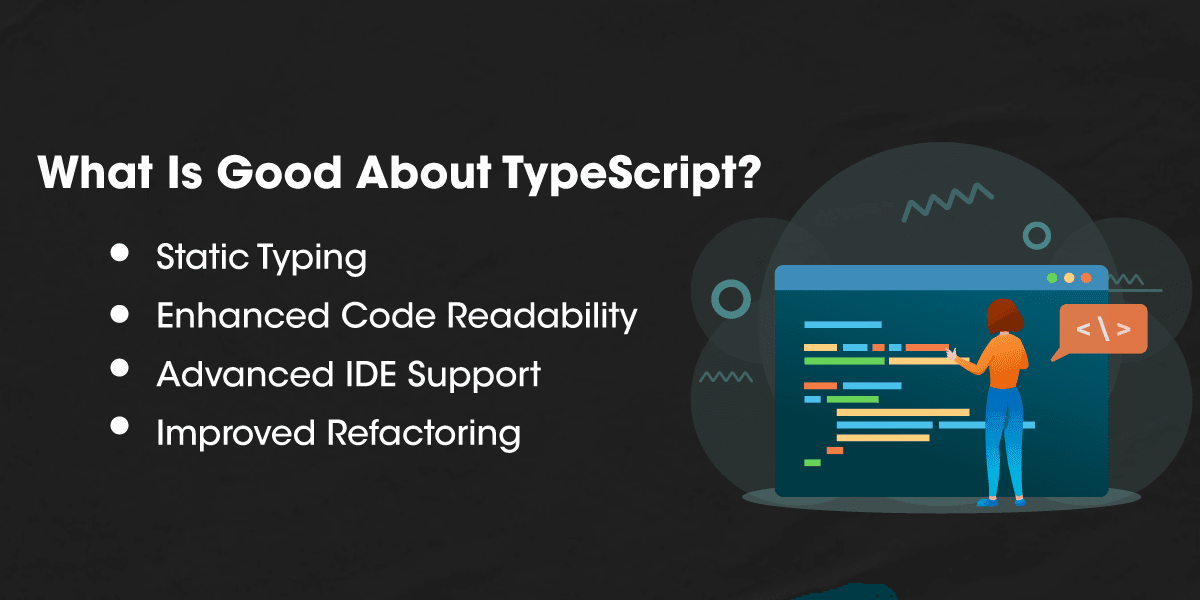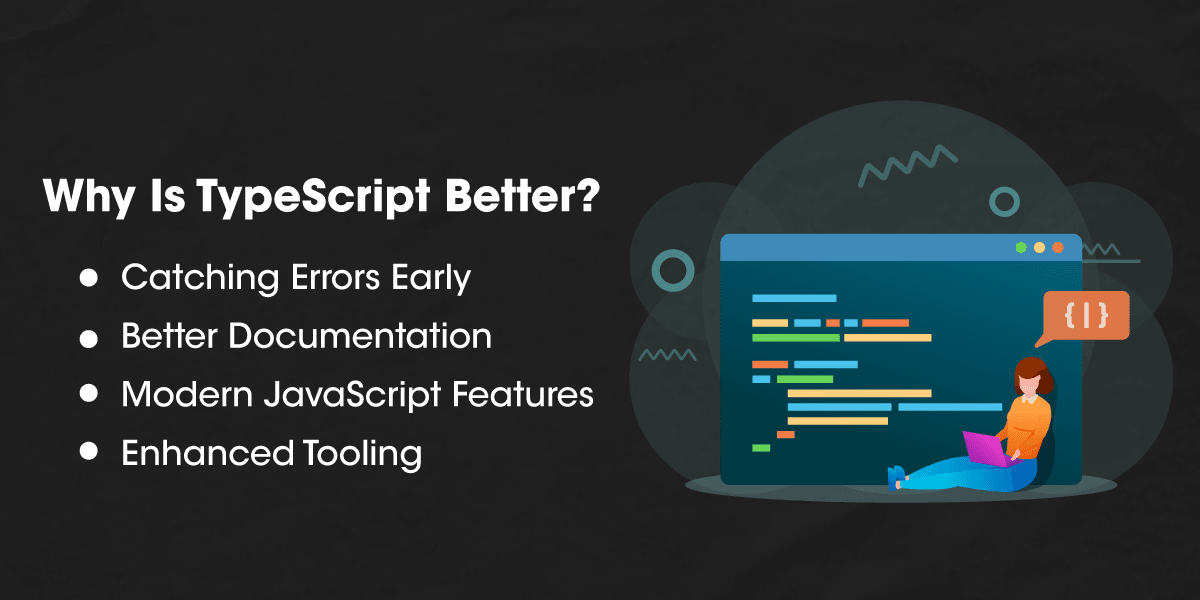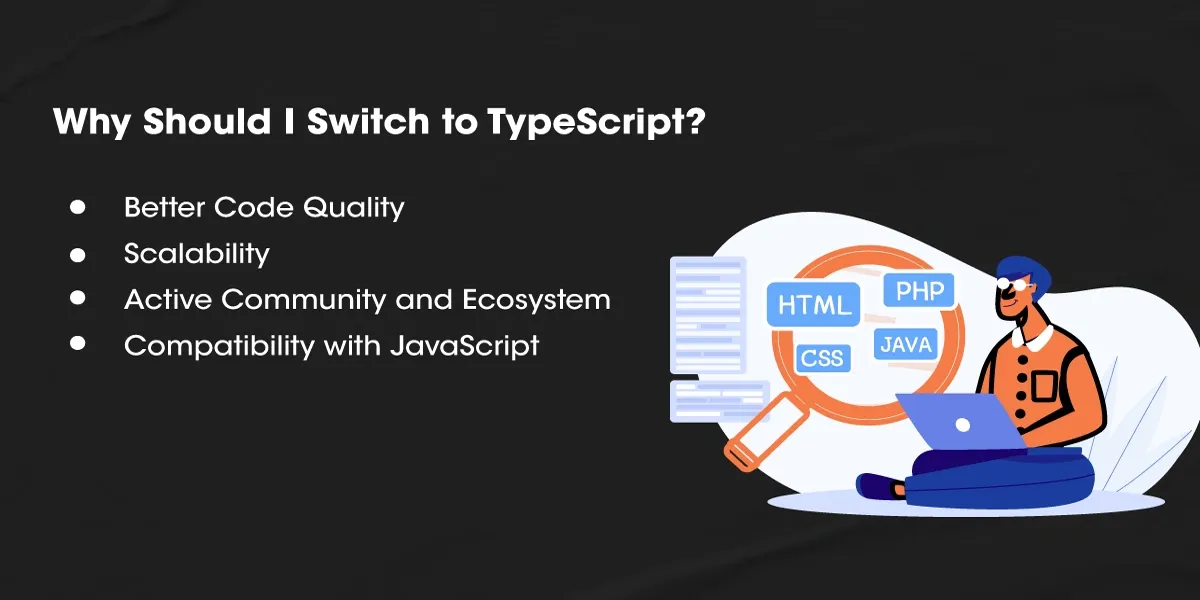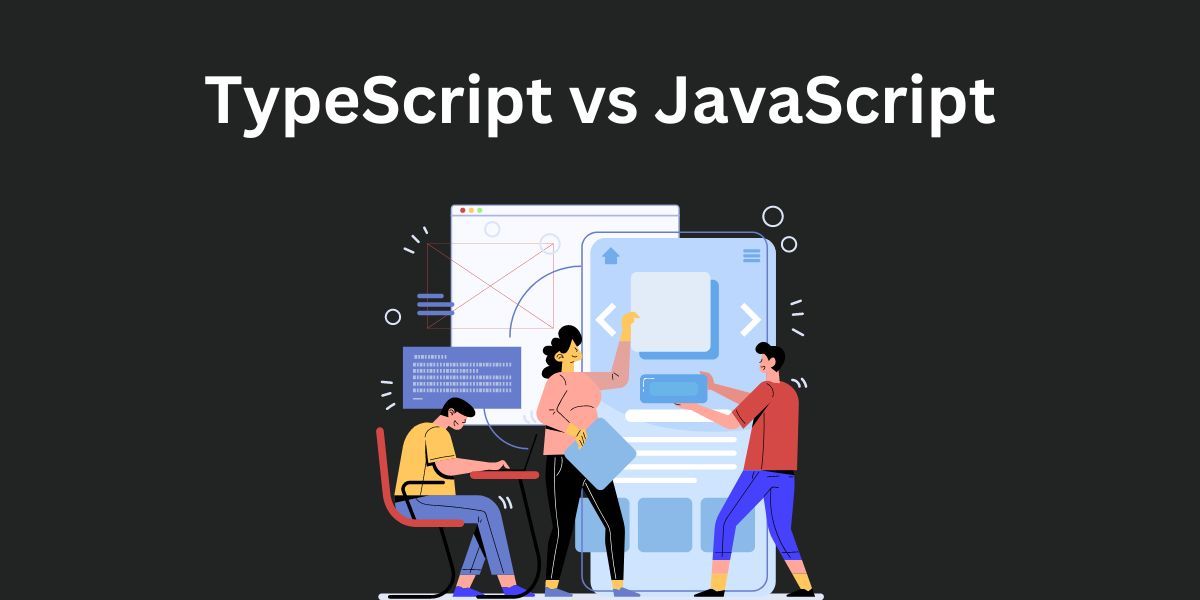The Advantages of TypeScript: A Comprehensive Overview
 Marketing IBTI#Marketing IBTI
Marketing IBTI#Marketing IBTI
In the ever-evolving landscape of web development, choosing the correct programming language can significantly impact the efficiency and scalability of your projects. TypeScript, a statically typed superset of JavaScript, has emerged as a popular choice among developers. This article delves into the multifaceted advantages of TypeScript, offering an in-depth analysis of why it might be the ideal choice for your next development endeavor.
What Is Good About TypeScript?
TypeScript was intended to address several shortcomings of JavaScript, a dynamically typed language. While JavaScript code can be more flexible, the lack of static typing can result in type-related problems that are difficult to detect. TypeScript, on the other hand, helps to avoid such concerns by incorporating static typing, which eliminates many potential errors before they reach the production phase.
TypeScript introduces several features that enhance JavaScript’s capabilities, making it a superior choice for many developers. Key benefits include:

Static Typing
One of TypeScript's standout features is its static typing. Unlike JavaScript, which is dynamically typed, TypeScript allows developers to specify types for variables, function parameters, and return values. This feature helps catch errors at compile time rather than at runtime, which can lead to more reliable and bug-free code.
Enhanced Code Readability
TypeScript’s type system improves code readability and maintainability. By explicitly declaring types, developers can clarify their intentions, simplify understanding, and modify the codebase. This clarity is particularly beneficial in larger projects or teams.
Advanced IDE Support
TypeScript offers robust Integrated Development Environment (IDE) support. Editors like Visual Studio Code provide features such as auto-completion, type inference, and refactoring tools that significantly enhance the development experience. This support streamlines the coding process and helps developers write code more efficiently.
Improved Refactoring
Refactoring is a crucial aspect of software development, and TypeScript’s static typing makes this process smoother. The type system enables safer and more accurate code refactoring, ensuring that changes to the codebase do not introduce new errors.
Why Is TypeScript Better?
TypeScript extends JavaScript’s capabilities in several ways, addressing some of the limitations inherent in JavaScript. Here’s why TypeScript might be the better choice for your projects:

Catching Errors Early: With TypeScript, many common errors are caught during compilation rather than runtime. This early error detection helps reduce debugging time and improves overall code quality.
Better Documentation: TypeScript's explicit type declarations serve as a form of self-documentation. Developers can understand the expected data types and functions without additional comments or documentation, making it easier for teams to collaborate and maintain code.
Modern JavaScript Features: TypeScript supports many of the latest JavaScript features, including async/await, decorators, and optional chaining. This support allows developers to write modern JavaScript code while benefiting from TypeScript’s static type checking.
Enhanced Tooling: TypeScript integrates seamlessly with various build tools and frameworks, such as Angular, React, and Vue. This integration provides developers with a powerful toolkit for creating complex applications with improved developer experience and productivity.
What Are the Advantages of TypeScript Interfaces?
TypeScript interfaces offer additional benefits that enhance the flexibility and maintainability of your code. Here’s how:
Defining Object Shapes: Interfaces in TypeScript define the shape of objects, including properties and methods. This capability allows for precise type checking and ensures that objects adhere to specific structures, improving code consistency.
Implementing Contracts: Interfaces serve as contracts for classes and objects. By implementing an interface, a class agrees to adhere to the defined structure, which enforces consistency and predictability in the codebase.
Facilitating Code Reusability: Interfaces promote code reusability by allowing multiple classes to share a standard structure. This feature reduces redundancy and makes the code more modular and maintainable.
Supporting Multiple Inheritance: TypeScript interfaces support multiple inheritance, allowing a class to implement multiple interfaces. This flexibility allows for the composition of complex functionalities without the limitations of single inheritance.
Why Should I Switch to TypeScript?
Switching to TypeScript offers several compelling reasons for developers and teams alike:

Better Code Quality: TypeScript's static typing allows for better code predictions and error detection during development. Fewer runtime errors and bugs can save time and reduce debugging efforts.
Scalability: As projects grow, TypeScript’s type system helps manage complexity. Features like interfaces, enums, and generics allow you to design more robust architectures and maintain consistency across large codebases.
Active Community and Ecosystem: TypeScript's growing popularity means strong community support, regular updates, and a rich ecosystem of tools, libraries, and frameworks that can make development more efficient.
Compatibility with JavaScript: You can introduce TypeScript incrementally, allowing you to start small and gradually adopt its features without a complete rewrite. This means you can leverage TypeScript’s benefits while continuing to use your existing JavaScript code.
Advantages and Disadvantages of TypeScript
Advantages
Static Typing: Early error detection and enhanced code quality.
Readability: Improved clarity and documentation of code.
Tooling: Advanced IDE support and build tool integration.
Modern Features: Access to the latest JavaScript features and improvements.
Disadvantages
Learning Curve: TypeScript introduces new concepts that may require a learning period.
Compilation Step: Compiling TypeScript code can add complexity to the build process.
Potential Overhead: TypeScript’s type system can introduce additional code and complexity.
TypeScript vs JavaScript: What to choose?
TypeScript is popular among development teams because it allows for static typing, which helps detect potential issues early in the development process and increases code stability. However, TypeScript takes more effort and time to set up.

As a result, in some circumstances, consumers choose JavaScript to shorten the time to market and lower costs. Starting using JavaScript for the minimal viable product (MVP) allows the development team to focus on providing core functionality faster while perhaps securing more financing for future development. Once the MVP has been proven and there is a need to scale the project or improve its stability, switching to TypeScript can be a wise move.
However, a type system is necessary when a project is big or requires a dependable, stable code base. The TypeScript type system is handy for large-scale projects because it allows you to create and enforce types, which reduces errors and allows you to refactor code confidently. Its static type checking detects potential problems, making programs more stable and providing a better user experience. TypeScript also improves developer collaboration by increasing code understandability, speeding up code reviews, and facilitating quicker onboarding for new team members.
Final Thoughts
In conclusion, TypeScript offers significant advantages over JavaScript, particularly in code quality, maintainability, and development tools. Its static typing, robust IDE support, and modern features make it an attractive choice for developers seeking to enhance their projects' reliability and scalability. However, weighing these benefits against the potential drawbacks is essential to determine if TypeScript is the right fit for your specific needs.

Marketing IBTI
#Marketing IBTI🇧🇷 Português
A IBTI é uma empresa de tecnologia com mais de 12 anos de experiência em desenvolvimento de sistemas, apps e soluções sob demanda. Atuamos no Brasil e no exterior com foco em qualidade, inovação e eficiência.
🇺🇸 English
IBTI is a tech company with over 12 years of experience developing custom software, apps, and IT-as-a-service solutions. We serve clients in Brazil and abroad, with a strong focus on quality, innovation, and efficiency.